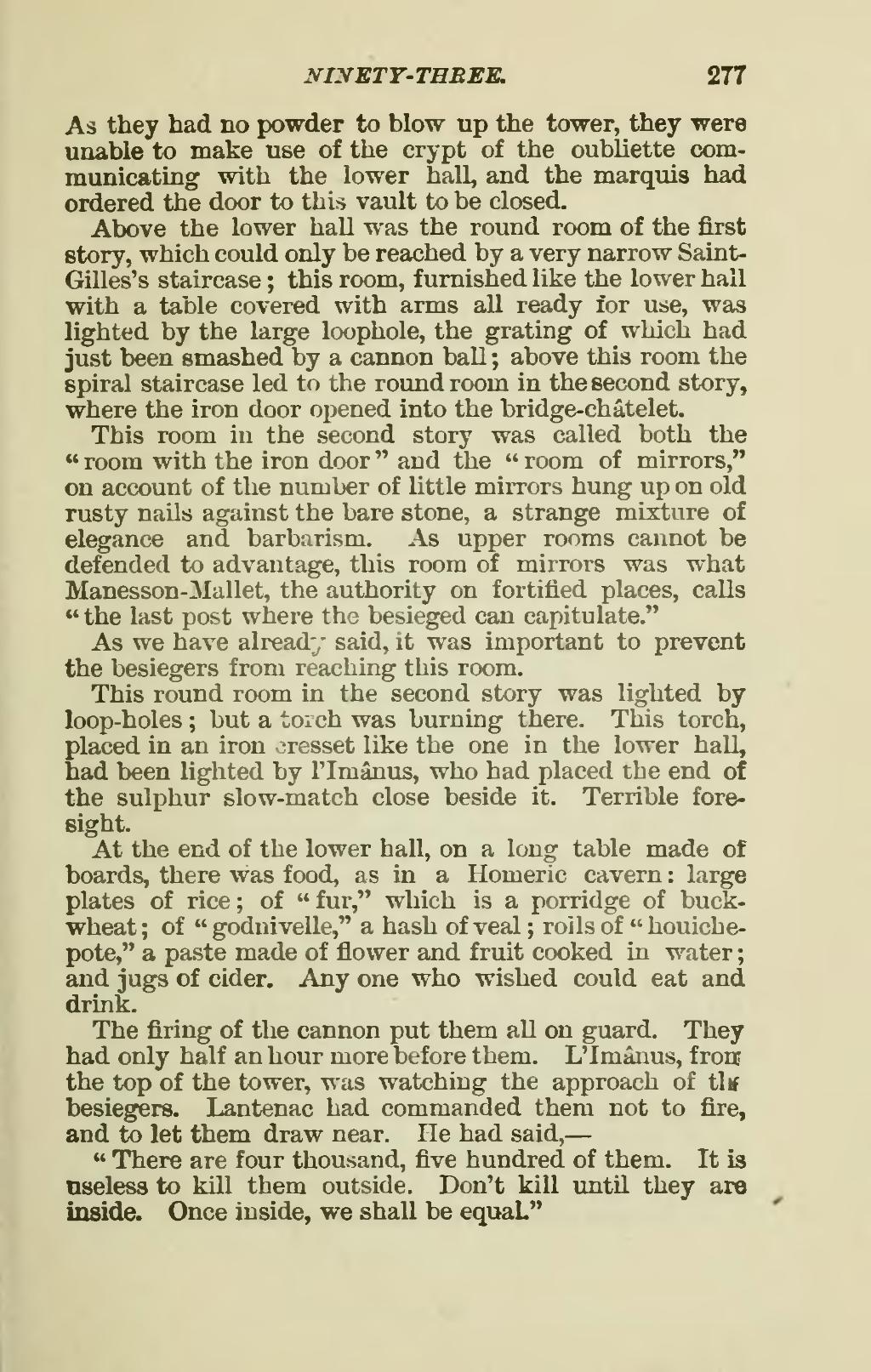As they had no powder to blow up the tower, they were unable to make use of the crypt of the oubliette communicating with the lower hall, and the marquis had ordered the door to this vault to be closed.
Above the lower hall was the round room of the first story, which could only be reached by a very narrow Saint-Gilles's staircase; this room, furnished like the lower hall with a table covered with arms all ready for use, was lighted by the large loophole, the grating of which had just been smashed by a cannon ball; above this room the spiral staircase led to the round room in the second story, where the iron door opened into the bridge-châtelet.
This room in the second story was called both the "room with the iron door" and the "room of mirrors," on account of the number of little mirrors hung up on old rusty nails against the bare stone, a strange mixture of elegance and barbarism. As upper rooms cannot be defended to advantage, this room of mirrors was what Manesson-Mallet, the authority on fortified places, calls "the last post where the besieged can capitulate."
As we have already said, it was important to prevent the besiegers from reaching this room.
This round room in the second story was lighted by loop-holes; but a torch was burning there. This torch, placed in an iron cresset like the one in the lower hall, had been lighted by l'Imânus, who had placed the end of the sulphur slow-match close beside it. Terrible foresight.
At the end of the lower hall, on a long table made of boards, there was food, as in a Homeric cavern: large plates of rice; of "fur," which is a porridge of buckwheat; of "godnivelle," a hash of veal; rolls of "houichepote," a paste made of flower and fruit cooked in water; and jugs of cider. Any one who wished could eat and drink.
The firing of the cannon put them all on guard. They had only half an hour more before them. L'Imânus, from the top of the tower, was watching the approach of the besiegers. Lantenac had commanded them not to fire, and to let them draw near. He had said,—
"There are four thousand, five hundred of them. It is useless to kill them outside. Don't kill until they are inside. Once inside, we shall be equal."
